Review for The House of the Devil
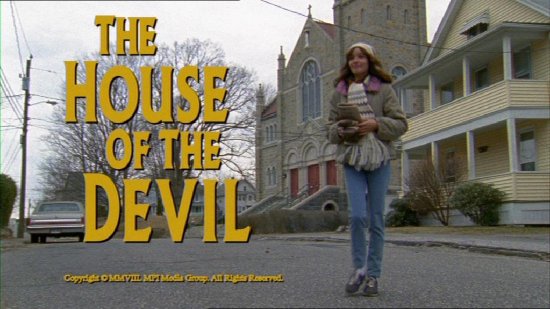
The yellow-tinged house Samantha (Jocelin Donahue) is looking to rent sits next to a church. The proprietor (Dee Wallace) charges $300 a month. Samantha gleefully walks down the street listening to her Sony Walkman. Yellow credits appear to the beat of funk-induced music. The camera follows Samantha to her college dorm. Her roommate is having sex. Samantha goes for a walk and spots a sign…
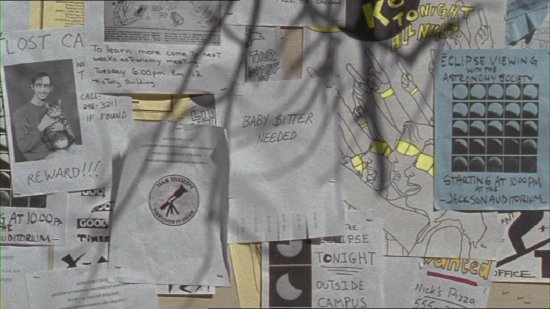
Samantha calls the number. There is no answer. As she walks away, the phone rings. Mr. Ulman (Tom Noonan) needs a babysitter. He will meet Samantha to discuss the job. She waits. He doesn't turn up. Samantha meets her friend Megan (Greta Gerwig).
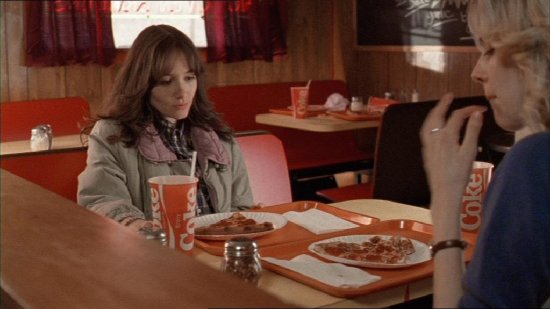
It's a shame Mr. Ulman didn't turn up. Looking after some punk-ass kid is fast dough. Back in the dorm, Samantha's roommate tells her 'somebody tried to call'. Samantha calls the number. Mr. Ulman is apologetic. Something unavoidable came up. He will pay Samantha $100 if she will babysit tonight.
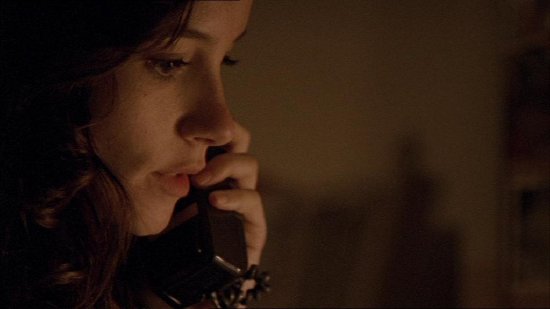
Samantha and Megan drive to the isolated house. It is dark. They knock. A tall man with a white beard invites them in. They sit down. Mr. Ulman takes Samantha to one side. He has not been completely honest.
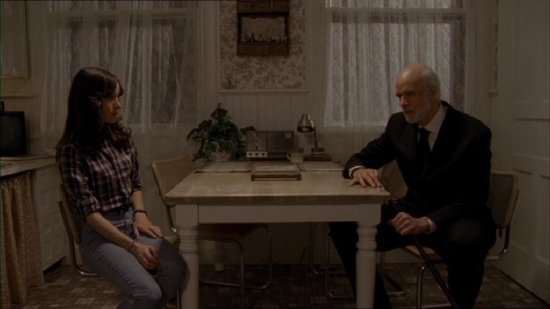
He and his wife (Mary Woronov) have no child. They want Samantha to look after the old woman in the attic. She refuses. Mr. Ulman offers $400. He is desperate. She accepts. Megan, who will pick Samantha up after midnight thinks she is crazy but money is money.
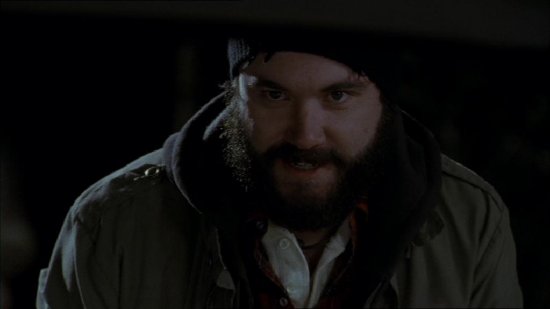
When Megan stops for a cigarette Victor, (AJ Bowen) jumps out of nowhere, 'are you the babysitter?' Megan says no. Back at the house, Mr. Ulman gives Samantha money for pizza. He and his wife disappear. Something is wrong with this house and its occupants. After ordering pizza, Samantha feels drowsy. It is the night of the solar eclipse and the old woman in the attic is about to introduce herself …
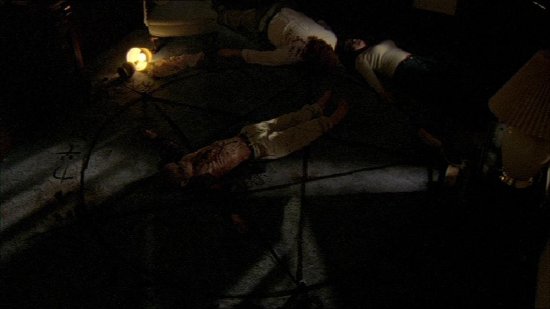
The House of the Devil bleeds nostalgia. Director Ti West has produced a near perfect example of a traditional 'less is more' horror film. Instead of using in-your-face gore, fast-paced music and extreme editing (like the majority of modern horror films); West uses low-key, melodic piano music and simple cinematography with lingering shots and deliberate zooms. It creates an unnerving air of anxiety and suspense. Filmmakers like Rob Zombie and Eli Roth could learn a lot from this movie.
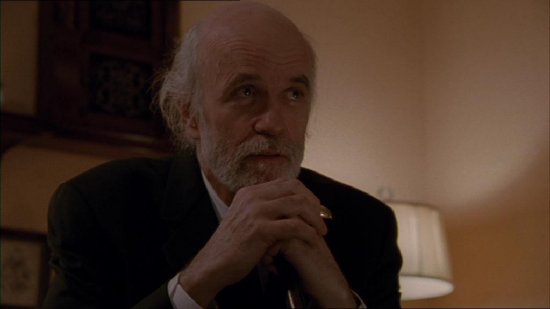
It doesn't need flashy blood-soaked visuals. Characterisation is at the core. We understand Samantha. She is likeable. This is why the moral heart to horror is so essential - we need to sympathise with the victim. This is why John Carpenter's Halloween (1978) has stood the test of time. We identify with Laurie Strode because she is vulnerable. Her fears are our fears. As Samantha shuffles through the empty house, knife in hand, listening to the scratching noises of the woman upstairs, we experience her horrors. She is alone. We are alone.
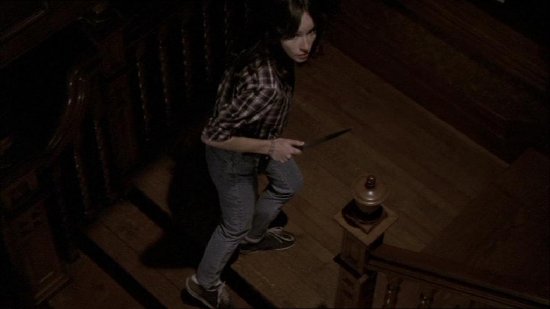
This was the fundamental theme of horror - compassion. It disappeared when frat-boy airheads took over the genre. They ignore the rules. If you're in the same boat as the protagonist, it is much scarier to be with them than distantly observing superficial 'torture-porn' victims being hacked to pieces by a rusty machete. Where is the characterisation and humanity? Where is the emotional impact?
Ti West has injected The House of the Devil with enthusiasm and homage; his geek-boy references to Hitchcock's Psycho (1960), Polanski's Rosemary's Baby (1968), Friedkin's The Exorcist (1973), Hardy's The Wicker Man (1973), Argento's Suspira (1977) and Kubrick's The Shining (1980) are endearing. Watch out for Romero's Night of the Living Dead (1968) on the television and the Hermann inspired score that creates terror and tension.
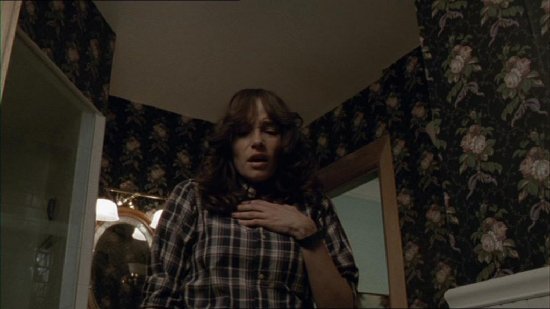
Special Features: Besides the bog-standard trailer treatment, the old-school documentary In The House of the Devil (13min) and the deleted scenes (7min), there are two commentary tracks. The first is with Ti West and Jocelin Donahue (who plays Samantha). The second is with Ti West, producers Larry Fessenden and Peter Phok, and sound designer Graham Reznick.
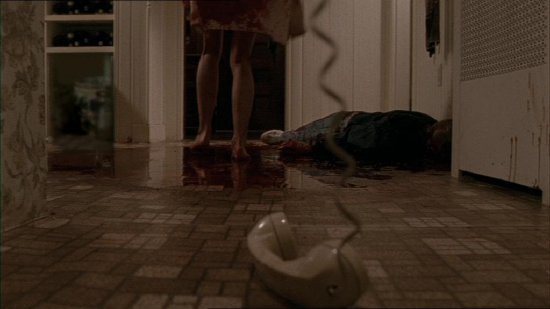
Verdict: Ti West knows how the nuts and bolts of his genre work; The House of the Devil is a suspenseful FrightFest that goes back to the fundamentals. It has melody, tempo and grace. Take the psychology out of horror and you have a superficial shell with senseless things happening on screen. Who gives a s*** when a masked killer is hacking away at an irritating teen? Not many modern filmmakers like Ti West have an aptitude for the nitty-gritty rudiments of horror, except for maybe Joe Lynch. Let us hope that Ti does not espouse the sensibility of his tasteless and talentless peers if he moves into the mainstream. The House of the Devil is a horror film with bags full of boogie-woogie.
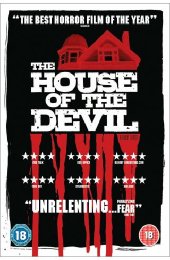





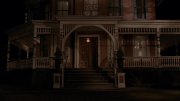




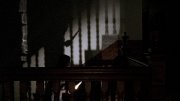



































Your Opinions and Comments
Be the first to post a comment!